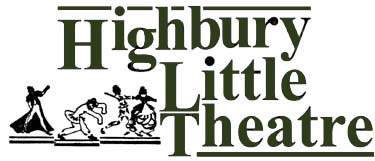Before he went off to war, before he ever got mixed up with the BBC writing radio scripts, Henry Reed was in theatre. Not only did he take part in student productions at the University of Birmingham, but he was involved with local theatre in his hometown of Erdington, writing (and surely acting) for the
Highbury Players, before they even had a proper theatre in which to perform (see "
The Miser in the Church House," previously).
Now, here's something interesting! In
Drama: The Quarterly Theatre Review, the "Newsletters" section quotes from the
Highbury Bulletin, the magazine of the Highbury Players:
Pasted back together, the complete paragraph reads:
The Highbury Bulletin for July notes the Theatre's Third Conference with its interesting addresses by Professor Allardyce Nicoll on "America's Contribution to the Theatre," by Robert de Smet on "The Theatre in Europe during the Occupation," by Arthur Vassjelo of the British Film Institute on "The Theatre and the Cinema," by Louis MacNeice on "Radio and the Theatre," by Henry Reed on "Modern Verse Drama," by Michael MacOwen on "The State and the Theatre," and by Dr. L. Du Garde Peach. William Armstrong presided.
The
Drama article is from sometime between 1946 and 1949 (issues 1-15), but we can narrow it down to summer 1946 or 1947, in all likelihood. It's an impressive marquee of headliners. MacNeice would have been fresh off
The Dark Tower, up from London to lecture on radio and the theatre. Reed was staying at Lovell's Farm in Marnhull at the time, working on his radio adaptation of
Moby Dick.
Professor Nicoll founded the
Shakespeare Institute in Stratford-upon-Avon, and
Lawrence Du Garde Peach was a stage and film writer, known also for authoring a series of history books for children under the Ladybird imprint.
The first Highbury Little Theatre on Sheffield Road, Sutton Coldfield, was completed in 1942, replacing a former mission hut. Expansion and a major refurbishing went on during the 1980s and '90s, creating a community arts centre, the
Highbury Theatre Centre.
In 1933, a small theatre group in Birmingham, England, staged a production of Molière's
L'Avare (
The Miser) at the Church House, High Street, Erdington (
pictured here). The company called themselves after the name of the house where they rehearsed: The Highbury Players. They had begun in 1924 as an artistic branch of the local
Independent Labour Party, originally meeting to read stage plays aloud, but eventually forming the
Highbury Little Theatre.
An excerpt from the book
Highbury Little Theatre: A Beginning, written in 1946, describes the
early efforts of the organization after their first play in 1925:
In the next twelve years the work undertaken included the following full length plays: Conflict, Much Ado about Nothing, Pygmalion, Heartbreak House, The Show, The Roof, Escape, The Skin Game, A Hundred Years Old, Pleasure Garden, Othello, The Circle of Chalk, The Sleeping Clergyman, and L'Avare in a new English translation by John English and Henry Reed—this was in 1932.
Mr. John English,
OBE, one of the original members of the group, would go on to become a trustee of the Highbury Theatre Centre, and would help found the
Midland Arts Centre.
There can be little doubt that the Highbury Players' co-translator of Molière's
L'Avare was our Henry: the odds of coincidence are just too great. Henry Reed was born and raised in Erdington, was a vocal Socialist, and concentrated on French (and Latin) throughout his education, from King Edward VI Grammar School, all the way through his years at the University at Birmingham, which happen to coincide with the play's production.
|
1540. Trewin. J.C., "Keeping It Up." Listener 52, no. 1342 (18 November 1954), 877. 879.
Trewin's review of Henry Reed's operatic parody, Emily Butter.
|










